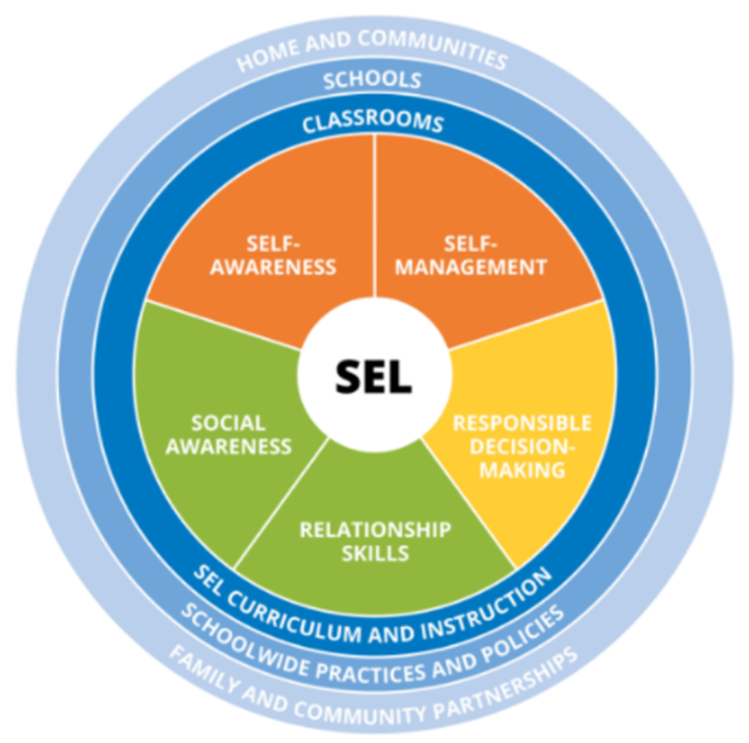 What is Social Emotional Learning?
What is Social Emotional Learning?
As Defined by the Collaborative for Academic, Social and Emotional Learning (CASEL), Social Emotional Learning (SEL) is the process through which children and adults acquire and effectively apply the knowledge, attitudes, and skills necessary to:
- understand and manage emotions.
- set and achieve positive goals.
- feel and show empathy for others.
- establish and maintain positive relationships.
- make responsible decisions.
SEL is a deeply ingrained part of the way students and adults interact, both in the classroom and out of it, and helps provide children with equitable, supportive, and welcoming learning environments. Studies show students who participate in evidence based SEL programs demonstrate higher academic achievement and lower rates of drop out, as well as fewer cases of school and classroom behavior issues, drug use, teen pregnancy, mental health problems and criminal behavior.
CASEL (Collaborative for Academic, Social and Emotional Learning)
The CASEL 5 addresses five broad, interrelated areas of competence. These five competencies can be taught and applied at various stages from childhood to adulthood and across diverse cultural contexts to articulate what students should know and be able to do for academic success, school and civic engagement, health and wellness, and fulfilling careers (https://casel.org/sel-framework).

| SELF-AWARENESS | | SELF-MANAGEMENT |
The ability to accurately recognize one’s own emotions, thoughts, and values and how they influence behavior. The ability to accurately assess one’s strengths and limitations, with a well-grounded sense of confidence, optimism, and a “growth mindset.” - Identifying emotions
- Accurate self-perception
- Recognizing strengths
- Self-confidence
- Self-efficacy
| | The ability to successfully regulate one’s emotions, thoughts, and behaviors in different situations – effectively managing stress, controlling impulses, and motivating oneself. The ability to set and work toward personal and academic goals. - Impulse control
- Stress management
- Self-discipline
- Self-motivation
- Goal setting
- Organizational skills
|
| SOCIAL AWARENESS | | RELATIONSHIP SKILLS |
The ability to take the perspective of and empathize with others, including those from diverse backgrounds and cultures. The ability to understand social and ethical norms for behavior and to recognize family, school, and community resources and supports. - Perspective-taking
- Empathy
- Appreciating diversity
- Respect for others
| | The ability to establish and maintain healthy and rewarding relationships with diverse individuals and groups. The ability to communicate clearly, listen well, cooperate with others, resist inappropriate social pressure, negotiate conflict constructively, and seek and offer help when needed. - Communication
- Social engagement
- Relationship-building
- Teamwork
|
| RESPONSIBLE DECISION-MAKING |
The ability to make constructive choices about personal behavior and social interactions based on ethical standards, safety concerns, and social norms. The realistic evaluation of consequences of various actions, and a consideration of the well-being of oneself and others. - Identifying problems
- Analyzing situations
- Solving problems
- Evaluating
- Reflecting
- Ethical responsibility
|
- Adverse Childhood Experiences (ACEs) training
- Trauma-informed schools and practices
- African American Male Empowerment
- Response-to-Intervention2 for Behavior (RTI2-B)
- School-wide culture and climate
- SCS supports and interventions for students
- Restorative practices
- ReSET Rooms
- Progressive and Restorative Discipline
- Truancy
- Homeless & Displaced Youth
- Section 504
- Anti-Bullying Initiatives & Training
- Counseling
- Mental Health Services